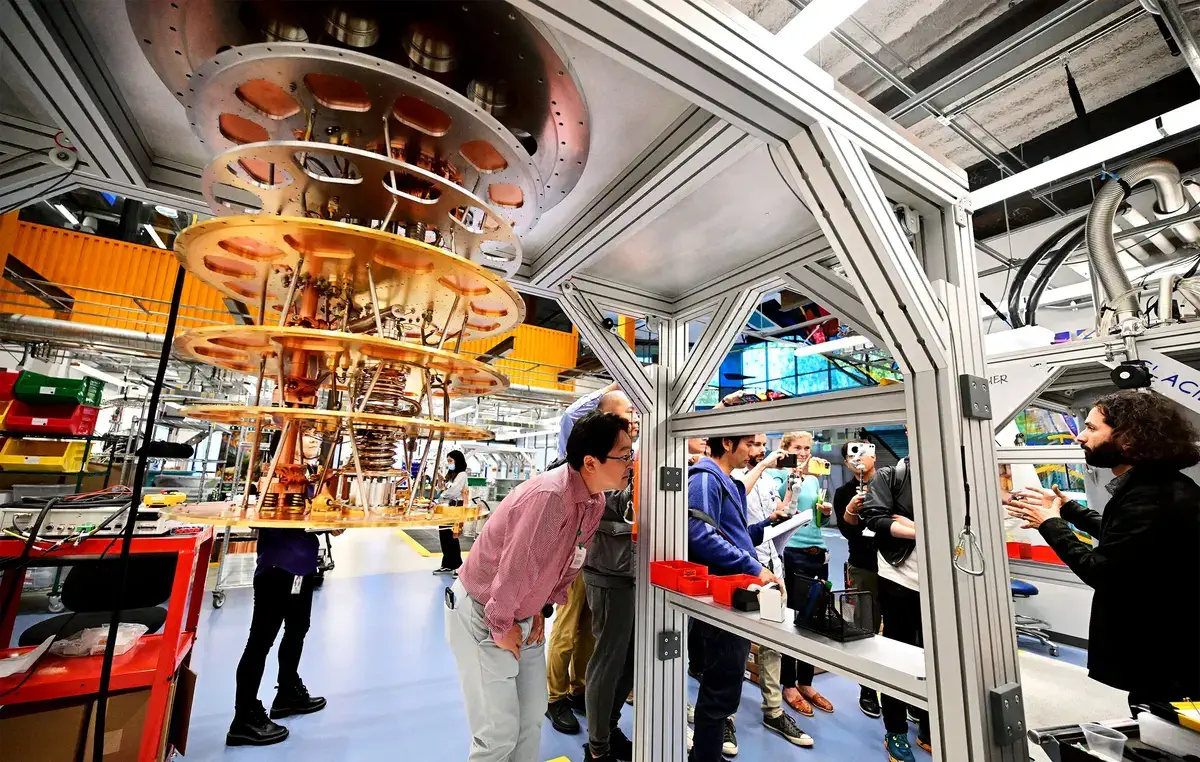Quantum computing is making headlines again as Microsoft, IBM, and Google push forward with major developments in the field.
While tech giants are securing government partnerships and unveiling roadmaps for fault-tolerant quantum computers, quantum computing stocks continue to fluctuate in 2025.
Microsoft, PsiQuantum Partner with DARPA
The Defense Advanced Research Projects Agency (DARPA) has selected Microsoft and PsiQuantum for the final phase of its Quantum Benchmarking Initiative (QBI). This project aims to validate and co-design an industrial-grade quantum computer.
“We will now focus our efforts on designing a prototype of a topological quantum computer,” said Chetan Nayak, a Microsoft quantum engineer.
IBM Targets Fault-Tolerant Quantum Computing
At an investor event on Feb. 4, IBM revealed its quantum computing roadmap, setting a goal to demonstrate the first error-correcting fault-tolerant quantum computer by 2028.
“This is one of the biggest milestones for the field,” said Jay Gambetta, IBM’s Vice President of Quantum.
IBM also reported that it has generated $1 billion in cumulative revenue from its quantum technology.
Google Eyes Commercial Quantum Applications by 2030
A senior Google executive told Reuters that the company is targeting commercial quantum applications within five years.
“We’re optimistic that within five years we’ll see real-world applications that are possible only on quantum computers,” said Hartmut Neven, Google’s Vice President of Engineering.
Google’s “Willow” quantum chip, announced in December 2024, initially boosted quantum computing stocks. However, the sector has since seen a market pullback in 2025.
Quantum Computing Stocks Take a Hit
Despite major advancements, quantum computing stocks have struggled this year:
- IonQ (IONQ) is down 3%
- Rigetti Computing (RGTI) has dropped 16%
- D-Wave Quantum (QBTS) has fallen 31%
- Quantum Computing (QUBT) has lost 44%
D-Wave Prepares for Qubits 2025 Conference
Meanwhile, D-Wave has announced its annual Qubits 2025 quantum computing user conference, set to take place in Scottsdale, Arizona, starting March 31. The event will feature insights from D-Wave executives, customers, and industry experts.
The Future of Quantum Computing
With Microsoft, IBM, and Google leading the charge, the race for a commercially viable quantum computer is heating up.
However, scaling up qubit technology and improving error correction remain critical hurdles before quantum computing can revolutionize industries.












Leave a comment